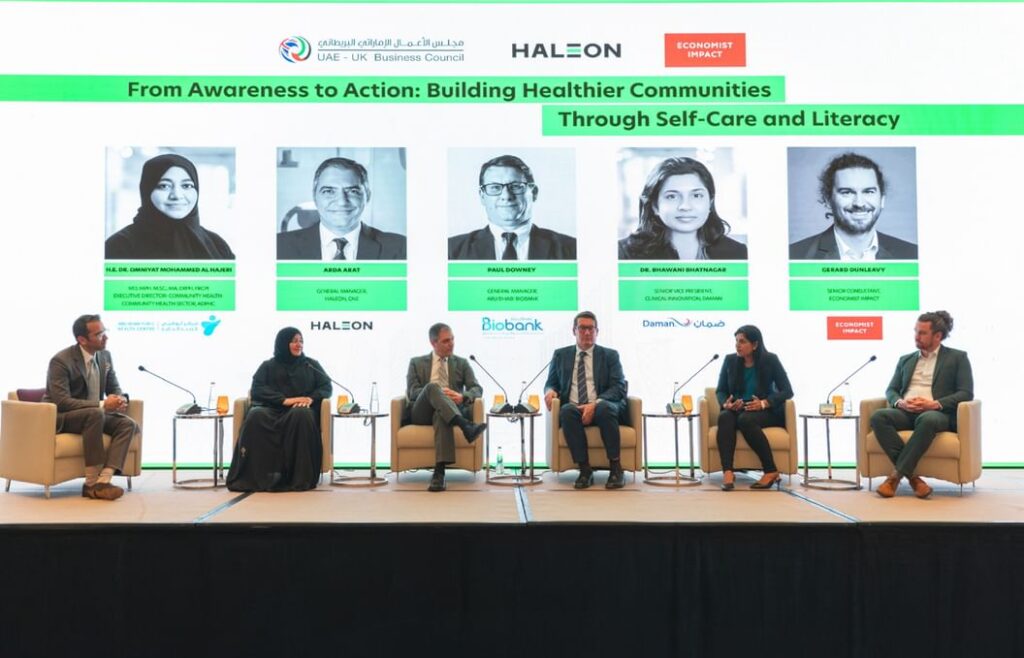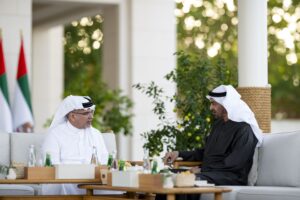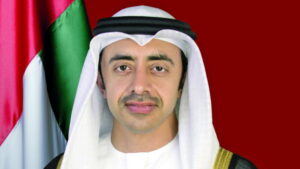UAE Tops Global Health Inclusivity Index, Leads in Outreach, Literacy and Wellbeing Promotion

Abu Dhabi, The Gulf Observer: The United Arab Emirates has secured the top global position in health outreach programmes, community participation in health policy, and wellbeing promotion, according to the newly released Health Inclusivity Index, developed by Haleon in collaboration with Economist Impact.
The findings were formally unveiled during a high-level panel discussion in Abu Dhabi under the theme “From Awareness to Action: Building Healthier Communities Through Self-Care and Literacy”. The event was jointly hosted by Haleon, the UAE–UK Business Council, and Economist Impact, and brought together senior leaders from government, academia, and the healthcare sector.
Key speakers included Dr. Omniyat Al Hajeri, Executive Director of Community Health Sector at the Abu Dhabi Public Health Centre; Arda Arat, General Manager, GNE, Haleon; Dr. Bhawani Bhatnagar, Senior Vice President of Clinical Innovation, Daman; Paul Downey, General Manager of Abu Dhabi Biobank; and Gerard Dunleavy, Senior Consultant in Health Policy at Economist Impact.
Dr. Al Hajeri delivered the opening remarks, while a special address was presented by Bradley Jones, Executive Director of the Joint Secretariat of the UAE–UK Business Council. Jones emphasized the Council’s pivotal role in fostering strategic collaboration in healthcare and beyond between the two nations.
Benchmarking 40 countries across 58 indicators, the Health Inclusivity Index assesses national performance in areas such as health literacy, equity, outreach, and inclusion. The UAE emerged as a top performer globally, reaffirming its status as a leader in inclusive and preventative healthcare systems.
The Index ranked the UAE among the world’s top five countries for person-centred healthcare, and second for implementation of inclusive health systems. The country also ranked tenth in health literacy, with public health literacy improving by 30% over the past three years—an achievement attributed to comprehensive outreach initiatives and strengthened cross-sectoral collaboration.
The Index further highlights the broader economic implications of inclusive healthcare. Reducing low health literacy by 25% in the UAE, for instance, could save the country $2.3 billion annually in healthcare costs. Moreover, low health literacy is associated with healthcare expenses that are 2.8 times higher per individual.
Specific areas of improvement outlined in the Index include:
- Oral Health: Enhancing oral health services could save $572 million in lifetime costs related to tooth decay. Currently, over 8.2 million working hours are lost annually due to oral health-related issues, translating into $175 million in productivity losses.
- Anaemia in Women: Addressing anaemia, which affects 24.3% of women of reproductive age, could reduce healthcare costs by $336 million annually.
- Gum Disease and Diabetes: Effective management of gum disease could reduce Type 2 diabetes-related costs by over $809 million over the next decade.
Dr. Omniyat Al Hajeri noted, “At Abu Dhabi Public Health Centre, we are committed to building inclusive, prevention-led systems that empower individuals and protect communities. This gathering reflects our shared belief that health promotion, awareness, and collaboration are key to shaping a more resilient and equitable future for all.”
Bradley Jones remarked, “As a member of the UAE–UK Business Council, Haleon exemplifies the purpose-driven partnerships we promote. Today’s gathering reflects our joint commitment to advancing inclusive health systems and translating data into real-world action.”
Haleon’s Arda Arat added, “The Index is not merely a metric — it’s a catalyst for change. The UAE’s leadership demonstrates that inclusive systems not only improve wellbeing but also fortify national resilience. At Haleon, we are committed to removing barriers to health through education and self-care.”
Paul Downey of Abu Dhabi Biobank stated, “Inclusive health research begins with public understanding. By improving health literacy and unlocking the power of data, we ensure that future healthcare systems reflect the diversity of the populations they serve.”
Gerard Dunleavy of Economist Impact concluded, “Health literacy and inclusion are foundational to both ethical governance and economic prosperity. The Health Inclusivity Index underscores that nations prioritising these principles reap tangible benefits—reduced expenditures, stronger participation, and healthier communities.”
The launch of the Index marks the beginning of a multi-phase initiative aimed at embedding health inclusivity and literacy across regional healthcare systems, policy frameworks, and community experiences.


